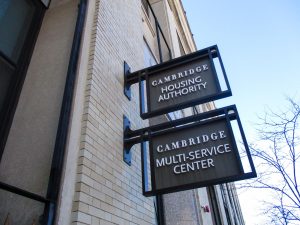New Equipment Expands Biotech at CRLS
May 30, 2018
Starting in September 2018, the RSTA Biotechnology Program at CRLS will begin training students in large-scale protein production.
About a year ago, the Biotechnology Program at CRLS received a grant of $100,000 from the Massachusetts Life Sciences Center (MLSC). This grant resulted in the purchase of new biomanufacturing equipment that can produce proteins using bacterial and mammalian cells. The new biomanufacturing lab will give students even more hands-on practice working and developing the skills needed to work in biotech industries.
In the Biotechnology Program’s current labs, students have been doing a small scaled version of biomanufacturing. They have been growing bacterial cells and using these to produce proteins. However, in the new 1,000 square foot facility that will be across the hall from the current biomanufacturing lab at CRLS, students will have the ability to produce protein at a much larger scale, including the use of mammalian cells.
The skills that students learn in the biotech program give them a serious advantage over other high school students. By having the hands-on experience with all of the equipment in the biotech labs that other high schools aren’t given, they are able to be very competitive candidates for different biotech internships and programs. CRLS students have been accepted to internships at places like the Broad Institute, Harvard University, and BioGen.
Not only do students enrolled in this program get accepted to competitive internships, but they also have the chance to take courses and apply for jobs right out of high school, earning salaries at the starting average of $55,000. The well-equipped labs that the RSTA Biotech Program offers gives many students who are looking for a more direct pathway towards employment the opportunity to enroll in biomanufacturing classes to learn important skills for jobs that don’t require bachelor degrees.
This program also gives students who are interested in science but either can’t imagine going to a four-year college or can’t afford it an equal chance of becoming as successful in biotech as students committing to a four-year college. Students who participate in the RSTA Biotechnology Program can acquire the important and necessary skills for working in a biotech industry after just two years of study.
When discussing the new biomanufacturing lab and the new advantages it provides for the program, junior Zeus Mondol said, “I think we, especially level ones and level twos, talk a lot about biomanufacturing, and I’m really looking forward to doing it in level three, so it’s nice that we finally sort of made the room across the hallway so we can actually do it.” He continued, explaining that although he learns a lot of the basic skills at CRLS that are required to work in a real lab, to really learn how to apply those skills requires expensive technology and hardware that the new labs will offer.
Dr. Abrams, the Biotechnology Program teacher, recently came back from a sabbatical during which she worked in a lab full time. While on sabbatical, she took the equivalent of three courses and became certified in biomanufacturing and Good Manufacturing Practice (GMP). When asked about the future of the RSTA Biotechnology Program, Dr. Abrams commented, “We have 35 level ones enrolled for next year, so that’s actually really exciting for us. And we’ve got ten people in our level three, so it’s a growing program about to take off in a really big way, and we’re really excited about that. It’s just a lot of opportunities for students.”
This piece also appears in our May print edition.









